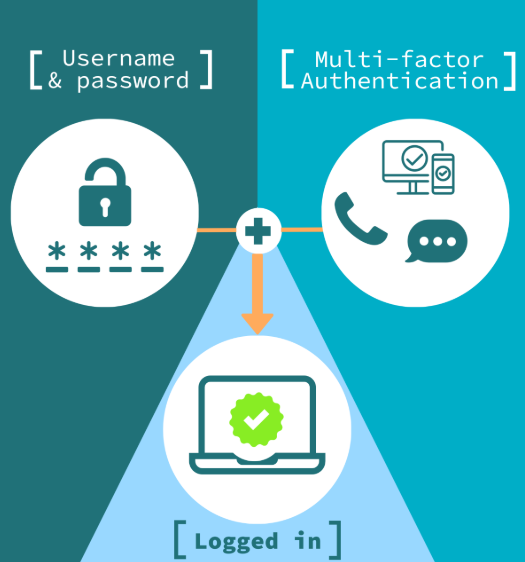
Running a business today means relying heavily on digital data. Whether it’s customer information, financial records, inventory databases, or marketing materials, this data is crucial to your operations. But what happens if all of that data disappears in an instant? From server crashes to cyberattacks or natural disasters, losing access to your critical data could bring your business to a standstill.
Many business owners mistakenly believe that data loss is something that won’t happen to them. However, data disasters are more common than we realize, and the fallout can be catastrophic. The effects include financial losses, operational disruptions, legal risks, and lasting damage to your reputation. In extreme cases, it could even force a business to close its doors for good.
Securing your business data is more than an IT concern; it’s a necessity for maintaining business continuity and ensuring long-term success. This post will walk you through the top causes of data loss and how to protect your business from these potential disasters.
1. Human Error
While we often think of complex cyberattacks as the main threat to our data, human error is actually one of the most frequent causes of data loss. Accidental file deletions, misplaced backup devices, or even spilling a drink on a laptop can all result in lost data. Employees may unknowingly delete or overwrite important files, or they might lose physical backup drives.
These mistakes can lead to major setbacks, affecting operations and causing unnecessary financial strain. To minimize the impact of human error, it’s essential to implement strict data management policies, provide regular training on data security best practices, and set clear access controls for sensitive information.
2. Hardware Failures
Hardware, such as hard drives and servers, has a limited lifespan and can fail unexpectedly. A hard drive crash or server malfunction can result in the complete loss of data stored on those devices. Power surges and other technical issues can also damage equipment, leading to further data loss.
Regular maintenance is crucial to extend the lifespan of hardware. Monitoring the health of hard drives, replacing old components, and using surge protectors can reduce the likelihood of hardware failures. However, relying solely on hardware reliability is risky. A robust backup strategy that includes off-site or cloud backups is essential to safeguard against potential hardware failure.
3. Software Issues
Software can be prone to malfunctions and glitches. Operating system crashes, corrupted databases, or issues caused by faulty updates can make your data inaccessible or cause it to become corrupted. Even compatibility issues between different software systems can lead to data loss.
Keeping your software up to date and applying necessary patches can help prevent data corruption. It’s also important to work with reputable software providers and ensure that your applications are fully compatible with your operating systems. Implementing an effective backup strategy will help you recover from software-related issues, but preventing these problems through regular maintenance is equally vital.
4. Cybersecurity Threats
Cyberattacks have become more frequent and sophisticated. Ransomware, for example, can lock your data and demand payment to release it, while malware can steal or corrupt important information. Phishing scams can trick employees into divulging sensitive data or downloading harmful software.
A strong cybersecurity defense is crucial for protecting your business against these threats. This includes using firewalls, intrusion detection systems, antivirus programs, and email filtering. Regular security assessments and penetration tests can identify vulnerabilities in your systems and improve your defenses. It’s also essential to train employees to recognize phishing attempts and to follow security best practices.
5. Natural Disasters
Natural disasters like hurricanes, floods, or earthquakes can wreak havoc on physical infrastructure, including your data storage devices. Without off-site backups, a disaster could lead to irreparable data loss if your equipment is damaged.
To prepare for natural disasters, businesses should create a disaster recovery plan that includes off-site or cloud backups. Cloud solutions and redundant systems can ensure that you can still access critical data even if your physical location is compromised. Planning ahead for disaster recovery will help your business stay operational during unexpected events.
Protecting Your Business Data
To protect your business from data loss, it’s essential to take a proactive, multi-layered approach. Regular data backups are a fundamental part of this strategy. Ensure that your data is backed up to multiple locations, including cloud or off-site storage, and establish a plan for fast data recovery in case of an emergency.
Additionally, maintaining strong cybersecurity measures, such as firewalls and antivirus software, is crucial to prevent external threats. Regularly maintaining and updating your hardware and software systems will also reduce the risk of failure. Finally, educate your employees on data security best practices to minimize the chances of human error.
Downtown Computer Services: Your Partner in Data Protection
At Downtown Computer Services, we have been helping businesses in Florida secure their data for over 25 years. We specialize in designing and implementing comprehensive data protection strategies, tailored to meet the unique needs of your business. Whether you need cloud-based backup solutions, disaster recovery planning, or ongoing system monitoring, we have the expertise to help safeguard your data.
We don’t just back up your data; we monitor your systems continuously and take preventive measures to reduce the risk of data loss. Our disaster recovery planning ensures that you can continue operations with minimal downtime, even in the face of unexpected events.
Conclusion
The consequences of data loss can be devastating for businesses of all sizes. By taking a proactive approach to data protection—through regular backups, strong cybersecurity measures, and disaster recovery planning—you can avoid the costly effects of data disasters. Implementing a robust data protection strategy will ensure that your business stays resilient, no matter what challenges lie ahead.














































